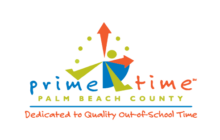9:00 am - 12:00 pm
Over the last 5 years, Prime Time has helped the JASE program become a successful afterschool program in Martin County. We are thankful for the variety of trainings offered, yearly actions plans and multiple site visits.
Afterschool ProfessionalMartin County Parks and Recreation
Teens and the Family Connection Series Part 2 – VIRTUAL
Participants are REQUIRED TO ATTEND ALL TRAININGS in the series and create and try out tailored activities in between trainings.
Part 1 – Teens and the Family Connections: Building Blocks
Part 2 – Teens and the Family Connection: Strong Partnerships
Today’s families are busier than ever before. The demands of modern life can make it difficult for parents to stay fully involved in their children’s education. Yet, studies have shown that parent involvement is one of the biggest predictors of student success. Family engagement has a life-long impact on the lives of youth and is a critical part of any effort to engage and empower teens. So how can you increase connection with families and involve them more fully in their children’s efforts in your out-of-school time program? This powerful training series provides the answer. While exploring the challenges of raising a family in modern society, you will learn how to improve your connection with families and increase their involvement with their teens and your program. You will also gain key principles and strategies to help you build a strong platform for effective family engagement.
Please note: Only afterschool practitioners working with middle school youth should register for this training.
Upon successful completion of this training series and follow-up assignment(s), the participant will earn 6 clock hours (.6 CEUs) of training.
Teens and the Family Connection: Building Blocks
Training Objectives
Participants will:
- Describe the social factors and family demands that make maintaining contact with parents a challenge.
- Identify the five building blocks of strong family involvement.
Teens and the Family Connection: Strong Partnerships
Training Objectives
Participants will:
- Implement the five essential elements of strong developmental relationships.
- Discuss the six shifts of approach which improve efforts to partner with families.
Core Knowledge, Skills and Competencies Addressed (CKSCs)
Equity and Inclusion
Equity and Antiracism Program and Leadership Practices
Apply – E. Regularly asks children, youth, and families for feedback on the program and acts on their recommendations.
Apply – G. Interrupts biased thinking and discriminatory behavior with children, youth, self and others.
Culturally Responsive Practice
Identify – B. Values and respects cultural differences in children, youth, and families.
Apply – B. Support the cultural identity, beliefs, and practices of each child, youth, and others.
Family, School, and Community Relationships
Relationships with Families
Identify – A. Identifies the role of the family as central to the development of children and youth.
Identify – C. Respects the family’s role in, influence on, and responsibility for education and development.
Apply – A. Communicates respectfully and positively with families from a variety of cultural and socioeconomic backgrounds.
Apply – C. Uses a strengths-based approach to develop and maintain open, cooperative, and respectful relationships with families.
Apply – F. Communicates with family members about their child’s development, program activities, and goals and shares applicable services and resources.
Apply – G. Listens to and trusts families’ feedback and perspectives.
Apply – I. Engages families with leadership opportunities.
Primary QIS Scales Addressed
I. Safe Environment
I-E: Creating Safe Spaces
III. Interactive Environment
III-N: Cultivating Empathy

